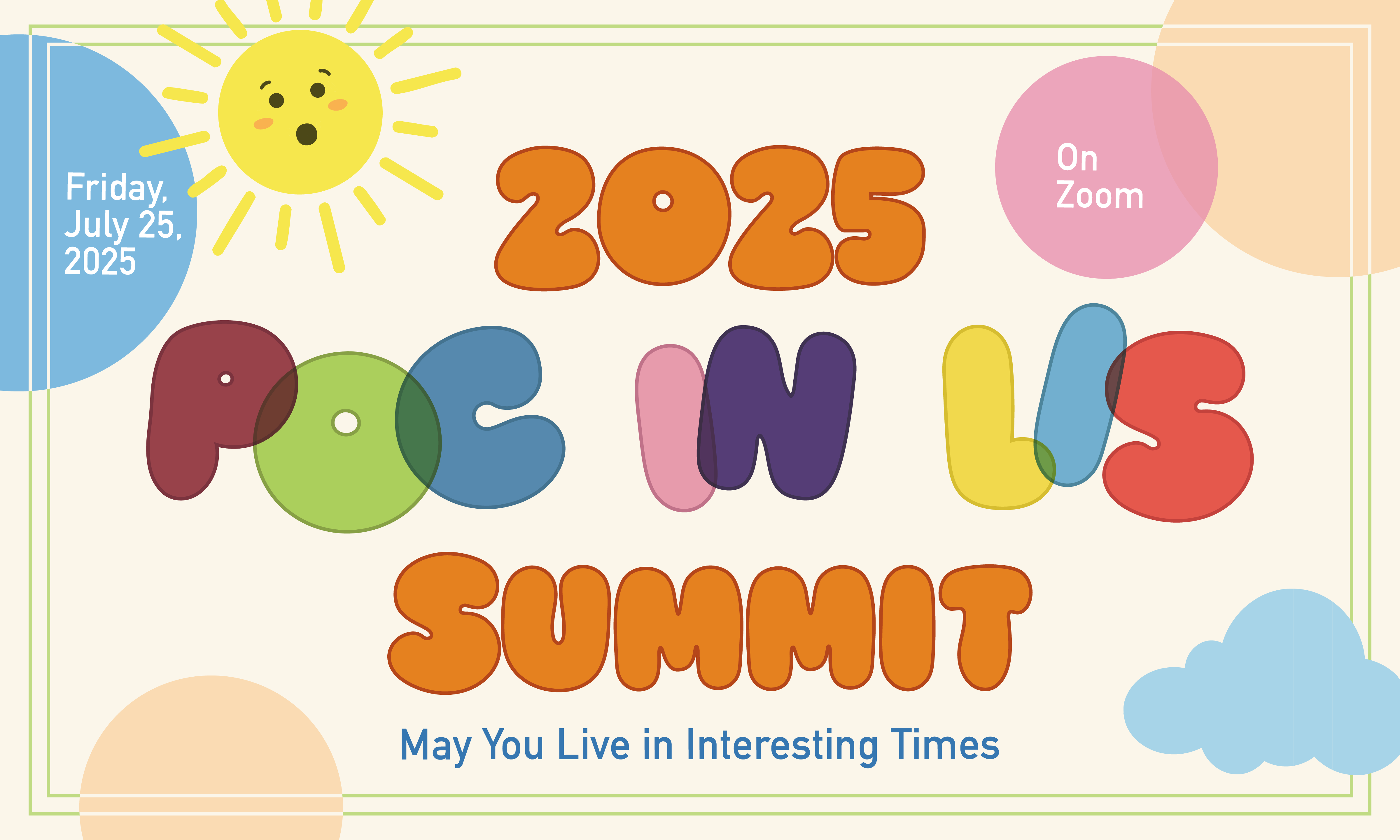
Sharing Expertise, Stories: Library and Information Science (LIS) Intersections in a Summer Science Internship Program
Event Type
Presentation
Start Date
23-7-2021 1:05 PM
End Date
23-7-2021 2:05 PM
Description
In 2020, three Librarians and a Master of Library Science (MLS) graduate student of Color, came together in community to support Indigenous undergraduates for a summer environmental studies program. Community meant holding space at the intersection of academic expertise, lived experiences, and instruction styles. Respecting our collective knowledge and an openness to diverse perspectives, we purposely decided to incorporate storytelling and personal experiences into our information literacy (IL) instruction sessions.
Sharing aspects of our lived experiences and our professional identities, we aligned our expertise as Librarians of Color to support the summer interns. This meant we each incorporated storytelling in different ways and at different points of the instruction series. At the onset of the program, the MLS graduate student used storytelling to contextualize the history of the hosting tribal university for the interns at the cultural center on campus. The tribal university librarian connected to the interns by using a graphical representation of an Indigenous Knowledge concept to teach the use of primary and secondary sources. The technique of tying the information literacy sessions together with Indigenous concepts and storytelling credited the tribal students’ cultures and added value to Traditional Knowledge Systems in their environmental research. The science librarian employed mind mapping to tell the story of water contamination in her hometown and its effects on her family. Utilizing storytelling lateral to the Western narrative, the undergraduate engagement librarian introduced the concept of keyword development when searching databases; value in creating a keyword bank; and using Boolean logic in a step-by-step process as well as examples of the endonyms and exonyms in keyword terminology when using Western academic databases, and its impact to the Indigenous researcher. This collaboration continues to expand their instructional framework and practice of librarianship.
Sharing Expertise, Stories: Library and Information Science (LIS) Intersections in a Summer Science Internship Program
In 2020, three Librarians and a Master of Library Science (MLS) graduate student of Color, came together in community to support Indigenous undergraduates for a summer environmental studies program. Community meant holding space at the intersection of academic expertise, lived experiences, and instruction styles. Respecting our collective knowledge and an openness to diverse perspectives, we purposely decided to incorporate storytelling and personal experiences into our information literacy (IL) instruction sessions.
Sharing aspects of our lived experiences and our professional identities, we aligned our expertise as Librarians of Color to support the summer interns. This meant we each incorporated storytelling in different ways and at different points of the instruction series. At the onset of the program, the MLS graduate student used storytelling to contextualize the history of the hosting tribal university for the interns at the cultural center on campus. The tribal university librarian connected to the interns by using a graphical representation of an Indigenous Knowledge concept to teach the use of primary and secondary sources. The technique of tying the information literacy sessions together with Indigenous concepts and storytelling credited the tribal students’ cultures and added value to Traditional Knowledge Systems in their environmental research. The science librarian employed mind mapping to tell the story of water contamination in her hometown and its effects on her family. Utilizing storytelling lateral to the Western narrative, the undergraduate engagement librarian introduced the concept of keyword development when searching databases; value in creating a keyword bank; and using Boolean logic in a step-by-step process as well as examples of the endonyms and exonyms in keyword terminology when using Western academic databases, and its impact to the Indigenous researcher. This collaboration continues to expand their instructional framework and practice of librarianship.



